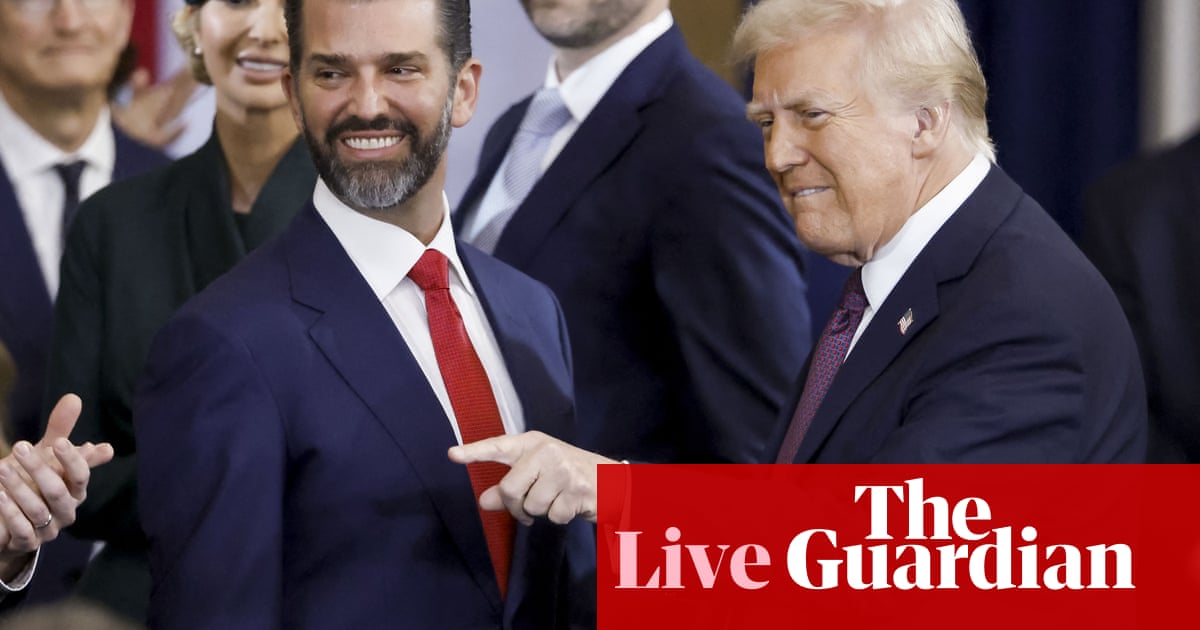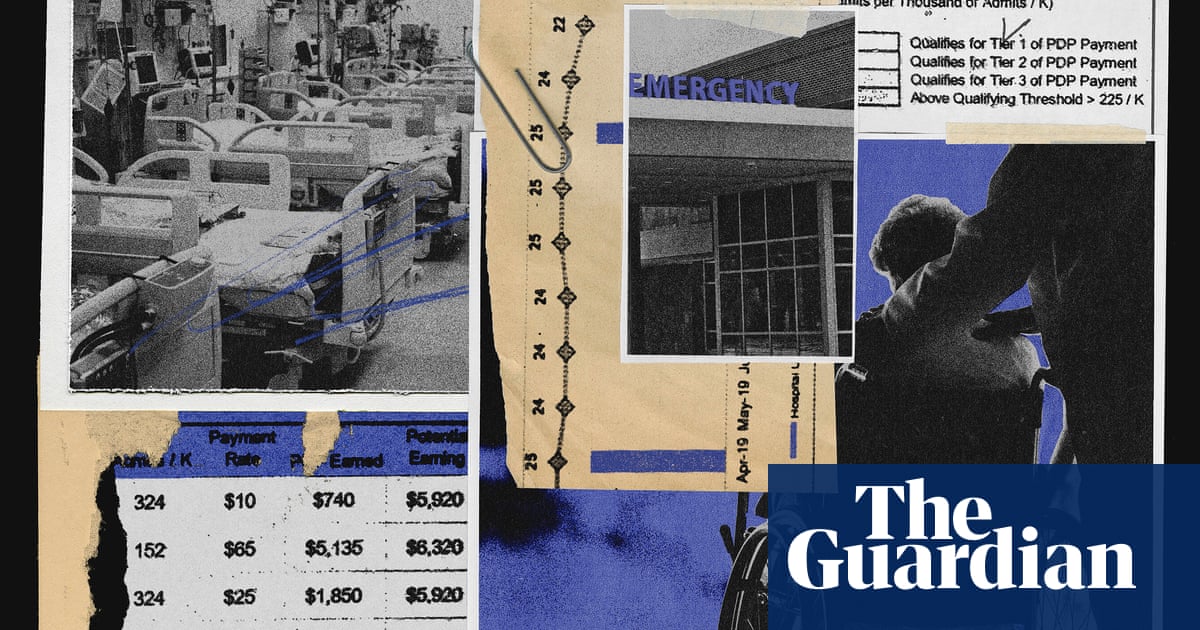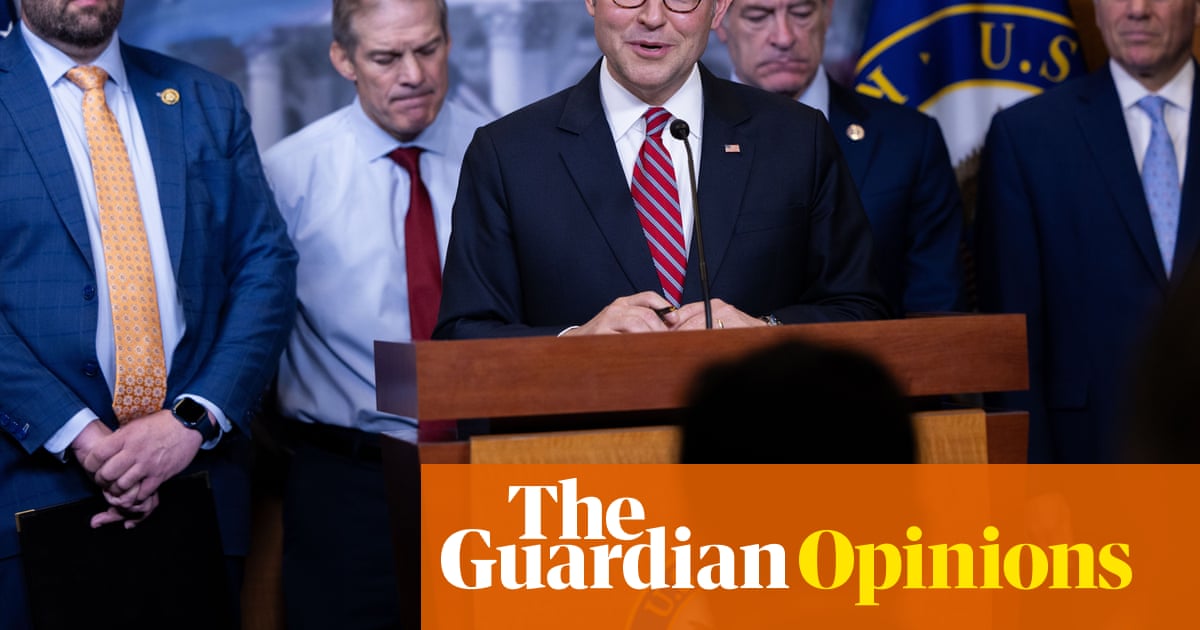Opening summary
Good morning, and welcome to our rolling coverage of business, the financial markets and the world economy, as reaction to the latest US tariffs comes in.
Donald Trump announced 25% tariffs on foreign steel and aluminum on Monday, ramping up his controversial bid to boost the US economy by hiking taxes on imports from overseas.
The modified US duties will be enforced “without exceptions or exemptions”, the president declared, dashing the hopes of countries that hoped to avoid them.
Asked about the possibility of other countries retaliating against US tariffs, Trump said: “I don’t mind.”
Canada’s industry minister said the US tariffs were “totally unjustified”, with Canadian steel and aluminum supporting key US industries including defense, shipbuilding, energy and autos.
Meanwhile Hong Kong will file a complaint on recent US tariffs imposed on the city to the World Trade Organization, claiming the US has completely ignored the city’s status as a separate customs territory, chief secretary Eric Chan said on Tuesday.
“This is absolutely inconsistent with the WTO rules. Of course, they have totally disregarded Hong Kong is a separate customs territory,” Chan, the China-ruled city’s number two official, told reporters.
“We will file a complaint to the WTO regarding this unreasonable arrangement,” he said without giving specifics.
Key events
Show key events only
Please turn on JavaScript to use this feature
Asia-Pacific stock markets are mixed as traders digest Trump’s tariffs announcement.
China’s CSI 300 index has dipped by 0.5%, while South Korea’s KOSPI is up 0.6%.
Kathleen Brooks, research director at XTB says President Trump’s tariff policy “remains unclear”, and is thus difficult to price in by financial markets.
She writes:
Trump said on Monday that tariffs on metals could go higher, and other tariffs could be announced later this week. At this stage, traders have little clarity about how far Trump’s tariff policies will go, whether they are mostly a negotiating tactic or if they will have a more long-lasting economic impact. It is also unclear if it will spark a wave of protectionism.
Are markets being too complacent, though?
Brooks says:
The Vix volatility index fell to 15.81 on Monday, which is below the 12-month average of 15.92. This is a clear sign that investors have some ‘tariff fatigue’ and it may take another driver, such as inflation concerns, to move the dial for equity markets. While volatility remains low, this could help stocks to grind higher.
Gold at new record high after Trump tariffs
The gold price has hit a new record high as demand for safe-haven assets continues to push up bullion.
The spot gold price traded as high as $2,942.70 per ounce after Donald Trump announced the new steel and aluminium tariffs. That means its gained over 11% so far this year.
Ipek Ozkardeskaya, senior analyst at Swissquote Bank, says:
The US dollar extended gains and gold hit a fresh ATH fuelled by fresh tariff threats from Donald Trump. In addition, China now allows insurers to buy gold and hold 1% of their holdings in the precious metal as other investment options are not ideal at the moment.
French Industry Minister responds to Trump tariffs calling for united Europe response
France’s Minister for Industry and Energy, Marc Ferracci, has responded to Trump’s tariffs, saying that Europe should respond in a united and firm manner, Reuters reports.
Callum Jones
Donald Trump announced 25% tariffs on foreign steel and aluminum on Monday, ramping up his controversial bid to boost the US economy by hiking taxes on imports from overseas.
The modified US duties will be enforced “without exceptions or exemptions”, the president declared, dashing the hopes of countries that hoped to avoid them.
Trump first imposed steep tariffs on foreign steel and aluminum during his first presidency. The action announced on Monday night ends exemptions granted to certain countries, and increases the duty rate on aluminum.
The changes are not due to come into effect until 4 March, however, according to a White House official – raising the prospect of the Trump administration brokering deals with governments seeking reprieve.
Countries including Australia have already been making their case and Trump later said he would give “great consideration” to Australia’s request for an exemption to the steel tariffs due to that country’s trade deficit with the US.
Opening summary
Good morning, and welcome to our rolling coverage of business, the financial markets and the world economy, as reaction to the latest US tariffs comes in.
Donald Trump announced 25% tariffs on foreign steel and aluminum on Monday, ramping up his controversial bid to boost the US economy by hiking taxes on imports from overseas.
The modified US duties will be enforced “without exceptions or exemptions”, the president declared, dashing the hopes of countries that hoped to avoid them.
Asked about the possibility of other countries retaliating against US tariffs, Trump said: “I don’t mind.”
Canada’s industry minister said the US tariffs were “totally unjustified”, with Canadian steel and aluminum supporting key US industries including defense, shipbuilding, energy and autos.
Meanwhile Hong Kong will file a complaint on recent US tariffs imposed on the city to the World Trade Organization, claiming the US has completely ignored the city’s status as a separate customs territory, chief secretary Eric Chan said on Tuesday.
“This is absolutely inconsistent with the WTO rules. Of course, they have totally disregarded Hong Kong is a separate customs territory,” Chan, the China-ruled city’s number two official, told reporters.
“We will file a complaint to the WTO regarding this unreasonable arrangement,” he said without giving specifics.

 3 months ago
68
3 months ago
68

















































